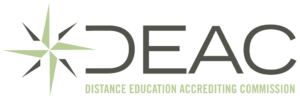Have you ever dreamt of leading a school, shaping young minds, and creating a positive learning environment? If so, becoming a school principal might be the perfect career path for you.
Principals play a vital role in schools, overseeing everything from curriculum development to staff management. This challenging but rewarding position requires a unique blend of skills and experience. This blog explores the responsibilities, skills, educational qualifications, professional experience, and salary outlook for the exciting career role of a principal.
What does a School Principal do?
So, what are the responsibilities of a principal?
School principals wear many hats! They’re the CEOs of their schools, responsible for a lot of different things that keep the school running smoothly and ensure students get a great education.
- Educational Leadership:
- Provide visionary leadership to the school community.
- Set goals for academic excellence and implement strategies to achieve them.
- Administrative Management:
- Oversee day-to-day operations of the school.
- Manage budget, scheduling, and resource allocation.
- Staff Supervision and Development:
- Hire, evaluate, and support teachers and staff members.
- Ensure a positive learning environment and foster professional growth.
- Student Discipline and Support:
- Implement disciplinary policies.
- Promote positive behavior and provide support services for academic and personal needs.
- Curriculum Development and Implementation:
- Collaborate with educators to design and implement effective curriculum.
- Ensure alignment with educational standards and promote student learning.
- Community Engagement:
- Build partnerships with parents, community organizations, and local businesses.
- Support student success and enhance school resources and programs.
- Student Monitoring:
- Track student progress and analyze assessment data.
- Implement interventions to address academic challenges and improve outcomes.
- Crisis Management:
- Respond to emergencies and ensure safety and security.
- Communicate effectively with stakeholders during critical incidents.
Key Skills Required for Principals
The job of a school principal is multifaceted, requiring a blend of strong leadership and interpersonal skills.
Here are some of the key abilities that successful principals possess:
- Leadership: Principals set the vision and direction for the school, motivate and inspire staff, and create a positive learning environment for students.
- Communication: Effective communication is essential for building relationships with teachers, parents, students, and the wider community. Principals need to be clear, concise, and able to tailor their communication style to different audiences.
- Problem-Solving: Schools are complex organizations, and problems are inevitable. Principals need to be adept at identifying issues, analyzing them critically, and developing effective solutions.
- Decision-Making: Principals are constantly called upon to make decisions, often under pressure and with limited information. They need to be able to weigh the pros and cons carefully and make choices that are in the best interests of the school.
- Critical Thinking: Strong critical thinking skills are essential for analyzing data, evaluating educational programs, and making sound decisions about curriculum and instruction.
- Adaptability: The education landscape is constantly changing. Principals need to be flexible and willing to adapt to new trends and challenges.
- Delegation: Effective delegation is essential for managing a busy school and empowering staff members to take ownership of their work.
- Interpersonal Skills: Principals need to be able to build strong relationships with all members of the school community. This requires empathy, patience, and a genuine interest in the well-being of others.
Steps to Becoming a Principal
The path to becoming a principal involves acquiring the necessary qualifications and experience.
Let’s find out what are the eligibility criteria to become a principal.
Educational Qualifications
Prospective principals need a bachelor’s degree in education or a related field and also a master’s degree in education administration or leadership. Pursuing a doctoral degree program in educational leadership will enhance your skill set and expertise in areas like school management, education law, finance and instructional leadership.
A doctoral degree in education empowers educators to emerge as scholarly practitioners and leaders equipped to address the forthcoming challenges within the teaching profession.
Work Experience
In addition, principals need teaching experience. Every principal starts their journey as a teacher, accumulating several years of teaching experience before advancing to the role of a principal. This typically ranges from one to five years, depending on the specific school and its requirements.
Most schools prefer candidates with teaching experience in the classroom. This will ensure that the candidate has firsthand knowledge of student needs, teaching process and overall educational system from a teacher’s point of view.
License Requirements
Before initiating the submission of applications, it’s crucial to verify that your licensing and certifications adhere to the state guidelines.
The criteria for obtaining a school principal license in the United States differ from state to state. While certain states mandate that school principals must acquire a license or certification to serve in their role, others do not impose such requirements. However, obtaining licensure can be beneficial for principals as it may increase their job prospects and earning potential.
Typically, states that necessitate licensure for school principals will expect candidates to possess a master’s degree in education or a relevant discipline, finish a principal preparation program endorsed by the state, and successfully clear a licensure examination. Additional prerequisites might involve a specified duration of teaching experience and a background screening.
Salary and Job Outlook
Principals work in public and private elementary, middle, and high schools.
According to the U.S. Bureau of Labor Statistics, the median annual wage for elementary, middle, and high school principals was $101,320 in May 2022. However, salaries can vary depending on factors like experience, location, and school size. The salary for principals can also vary according to the years of experience or seniority level of the candidate.
Equipping yourself with the right skills and knowledge is key to becoming a successful school principal. Now that you understand the path, skills required, and the promising outlook for principals, are you ready to take the next step?
Enrolling in a doctoral degree in educational leadership can help you develop the necessary skills and strategies to become an effective educational leader.













